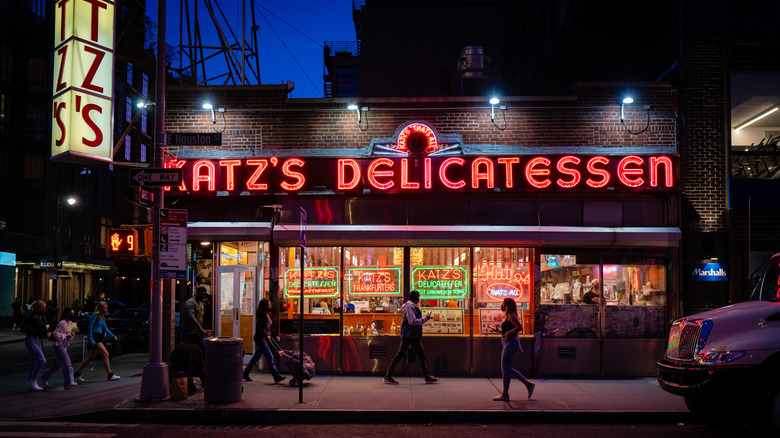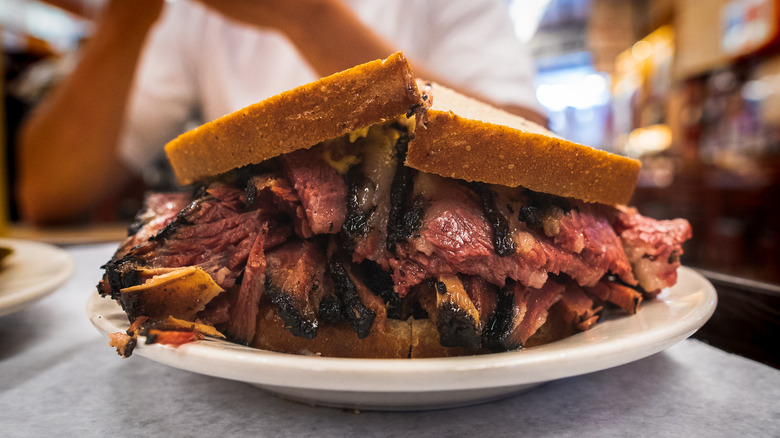The Origins Of The Jewish Deli
You'll find the classics lining the shelves of a Jewish Deli: hot pastrami and corned beef sandwiches, roasted turkey and beef, some traditional pickled herring, hand-cut lox, fresh containers of matzo ball soup, perfectly sour borscht, bagels, jars upon jars of dill pickles, all the salami a person could ask for, and, of course, the day's frankfurter special. Jewish Delis are the best places to find those classic dishes you can't get anywhere else, at least, not as good.
Today, Food & Wine lists Langer's Delicatessen and Brent's Deli in Los Angeles, Manny's Cafeteria & Delicatessen in Chicago, Shapiro's Delicatessen in Indianapolis, New York's Katz's Delicatessen and Liebman's Deli, New Jersey's Hobby's Deli and Harold's New York Deli as America's best Jewish delis. But not so long ago New York had a monopoly on the top-tier Jewish delis in the United States, no doubt because of the state's large Jewish diaspora. According to PBS, between 1880 and 1920, 2.5 million Jewish people braved the Atlantic to arrive in the New World, and 60% of those settled down in New York City's lower east side, bringing with them a rich and delicious culinary history.
A Nation of immigrants
Untapped Cities says Jewish delis came about during the mass migration in the 19th century. Many Jewish German immigrants opened these culinary shops called Delikatessens which translates as delicacies, and that's exactly what the stores provided. Places like the world-famous Katz's Delicatessen opened in 1888, and have been catering to the tastes of kosher and eastern European consumers ever since. The growth of delis in the city was made all the easier due to the previous German immigrants who had already popularized foods like sausages, frankfurters, sauerkraut, pickles, and cold cuts (via JSTOR Daily).
According to Fordham News, the number of Jewish people residing in New York City in 1920 had expanded to a whopping 1.5 million, and they needed kosher establishments from which to purchase their foods. For holiday preparation or everyday meals, people would flock to the delis to get their fill of Old World fare and because of the deli's massive popularity at the time, it became an integral part of America's culinary identity (via Digital Humanities Studio).

